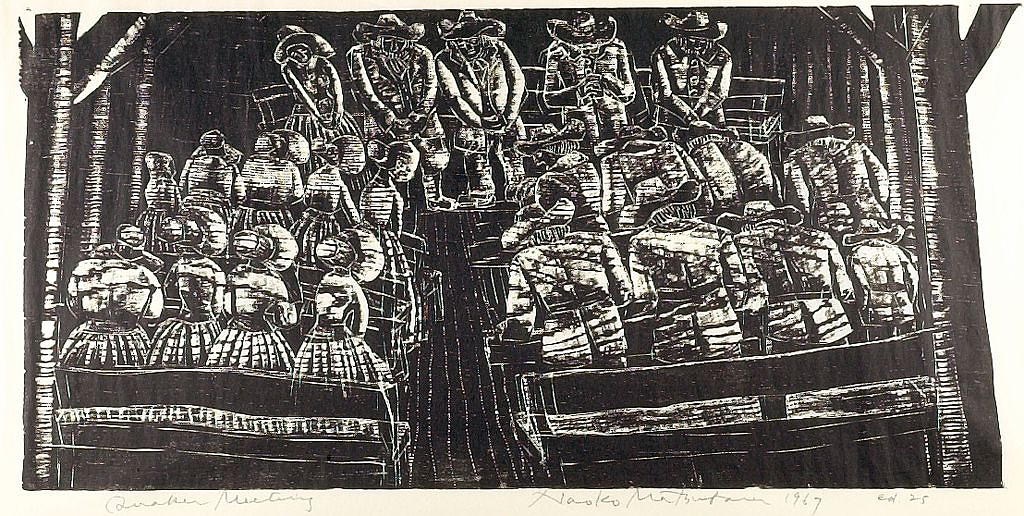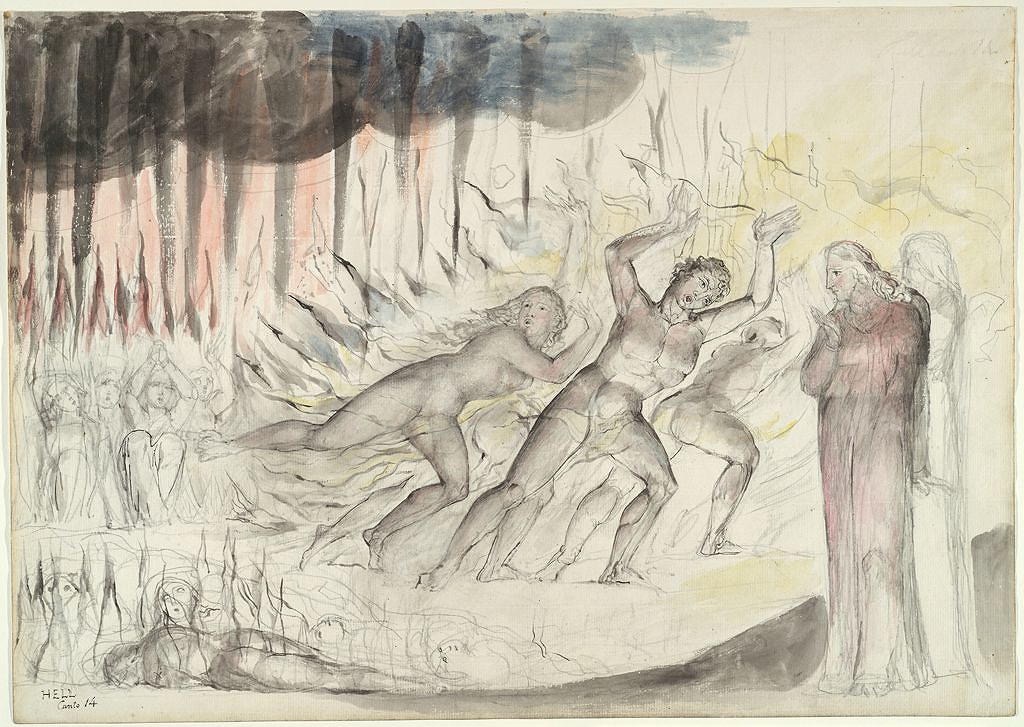Accshleptance

Jozef Israëls: Children of the Sea (1872)
"I pack 'em. I schlep them, too."
Someone wiser and even more sardonic than me once concluded that life's a Schlep. We might start without carry-on, but we quickly accumulate enough of an encumbrance to limit our mobility, then head downhill. Some people seem natively capable of accumulating more than their fair share. However, I will not mention here The Muse, who sometimes must be physically restrained to prevent her from "just stopping and looking" at every estate and garage sale she happens by. Of course, she almost always finds some reason there to add to her burden, and I remain mostly grateful for her discoveries. We try to strictly interpret the You Brought It, You Schlep It Rule. We do not consider helping anybody with their baggage a form of chivalry.
My study of Success has so far resulted in some additional carry-on. No surprise there, for I fully expected to add ballast as I discovered what I didn't know I knew. Some of my discoveries have been welcomed ones, and a few, worse than unwelcome. Some mornings, I wonder why I cannot seem to let my sleeping dogs lie and must deeply delve into my darker and more shadowy sides. This notion that I might add value by further investigating whatever Success means serves as a perfect example. I'm not on any upwardly mobile spiral. I'm entering that stage of life where I'm less interested in accumulating and should be more intrigued by disseminating, lightening my load, and reducing my net schlepping burden. I might have been mistaken.
The dedication tests continue in seemingly ever greater earnestness. Whatever I thought I might discover by delving into Success stories, I'm producing something else. Perhaps I sense my more naive notions evaporating to be replaced with a few additional burdens that threaten to become fresh obligations. The purpose of this existence, or mine, does not seem to be liberation but a curious accumulation. I gain additional understandings by stumbling over insights. I stuff the results into one of my many kit bags, thinking in that moment that it might prove useful one day. But, really, I mostly imagine that I might manage to give it away. If only I could find anyone willing to take it.
Is it a curse that I seem to collect only stuff that nobody else should or could ever accept as a gift? For instance, my hard-won insight must seem just so much noise when I generously offer to share it with a granddaughter. My perspective's somehow been pre-disqualified, as if anything I might offer from my burgeoning baggage could not be worth accepting, guilty by association, suspicious, if only by situation. Perhaps anything of real value could not be proffered for nothing but must be acquired the old-fashioned and inevitably harder way, personally. I, overflowing with such wisdom, must seem just another delusional windbag. Yet I persist in accumulating what I might mistake for knowledge, increasing my carry-on beyond the capacity of any overhead compartment. I sit cramped, my foot room crowded with my vanity, perhaps.
I can be reasonably sure that the end of this Success series will not provide a liberating moment. It might well end sixty installments from now with the usual whimper. I might now have finally shed the final remnants that this series might have managed to improve my ability to Succeed by standard measures. More likely, it might well yield the sorts of understandings of which I was speaking, which really should, by all rights, qualify as wisdom but for which no market will have been discovered. I will likely wind up richer for the effort but will have increased my baggage to the point where I'm just annoying my fellow passengers. I get it. Folks might prefer to learn how to Succeed conventionally, a wisdom that, finally, gratefully, seems utterly beyond me. I might have finally achieved what I call an Accshleptance of this series. I pack 'em. I schlep them, too.
—————
Still Off-gassing Initial Certainties
This writing week started with me admitting that this Success series was not delivering what I'd expected. This should not have surprised me, a dusty veteran of innumerable similar inquiries. I might have come to understand that it's always in the nature of these kinds of stories that the protagonist tends to learn something. This learning often proves disappointing because it only occasionally proves to provide reasons for celebrating. Their type of learning's more sobering and might not even register as anything like a Success at first but feel much more like a failure instead. (I'll have more to say about 'feeling like' as I proceed through this series.) The story takes control of itself and tends to take the designated writer for a humbling ride. The typical writer will try but fail to hide their increasing sense of loss of control and might finally admit the sort of Success that once felt more like defeat. Then the stories can continue but with a distinctly different tenor. Before that week, they were still off-gassing initial certainties, as if their author knew something about their subject. After, they become increasingly real, mainly because the writer starts getting over the idea that he's supposed to be extolling something besides unfolding innocent experiences. It should surprise nobody, not even me, that a series focused on Success should leave its writer feeling more like a failure while producing it. We live in irony; it seems, or not at all.
————
— ©2023 by David A. Schmaltz - all rights reserved
I began my writing week complaining about language's limitations in Longuage. "Writers like me worship metaphor and allegory, for we've many times failed to coin new words or shift meanings without employing these. We deal in odd combinations of apples and oranges, seeking insight if not precise description."
Matsubara Naoko: Quaker Meeting (1967)
—
I continued constructing this writing week's meta theme with Limited. "Success remains one of the more popular ways of failing, channeling as it always does, Limiting factors which deeply influence eventual acceptance. No game show host ever even distantly mentions taxes when giving their contestants those fabulous gifts. After the game show ends, the taxman cometh."
Matsubara Naoko: Winter Forest I (1967-1968)
—
I next spoke of Limiting aspirations as a common strategy for achieving Successes. "The surest ways to fail seem tied to trying to drag altogether too much stuff across any finish lime. It might seem heartless, but it seems essential that we each learn how to abandon so that we might thrive. We might even be best defined by what we managed to leave behind."
Matsubara Naoko: Chinese Theatre (1959)
—
I then introduced my fundamentally Panglossian personal philosophy and how that seems to influence my Successes in Heaven. "I might be becoming but I am also being, and my being seems more powerful, more present, more dominant than any shit ton of whatever I might one day become."
Matsubara Naoko: Waterfall (1966)
—
I next considered the tone of Envy that creeps into my criticisms of the richest person in the world. If I were the richest person in the world, I would be better at it than the present incumbent has been."
Matsubara Naoko: Page from Hagoromo [Feathered Robe] (1984-86)
—
I explained my relationship with technology in a story I called *Phobe, for I've been plotting a way around FaceBook's fickle algorithm which seems to have been hiding my posts lately. This posting proved the most popular this period. "Today, even the most canny "technologists" wisely consider themselves Phobes. They, like the rest of us, live in abject fear of the so-called apps we employ. We live as virtual slaves to them."
William Blake: Dante and Virgil Among the Blasphemers (1824-27)
—
I finished my writing week with an acceptance piece, respectfully entitled Modest, for I might have finally come to understand that there's no success like a modest one, and success might only ever actually come in modest flavors. "The older and more experienced I become, the more I feel attracted to Modest outcomes. I take real pride in my small accomplishments, mindfully done."
Claude Monet: Bordighera (1884)
—
I began my writing week trying to extend my language and ended it accepting the necessity of, and even a preference for, Modest Successes. Between that start and finish, I insisted that there's really no such thing except Limited Success, then set about investigating the arcane skills involved in Limiting to achieve that Success. I took a midweek break from my pursuit to stand aside and insist that this life, even this sometimes extremely frustrating exploration, might qualify as Heaven in my personal Panglossian philosophy. I declared my superpower—powerlessness—in Phobe before ending this excursion more fully accepting Modest as much more than just an elegant form of slacking.


